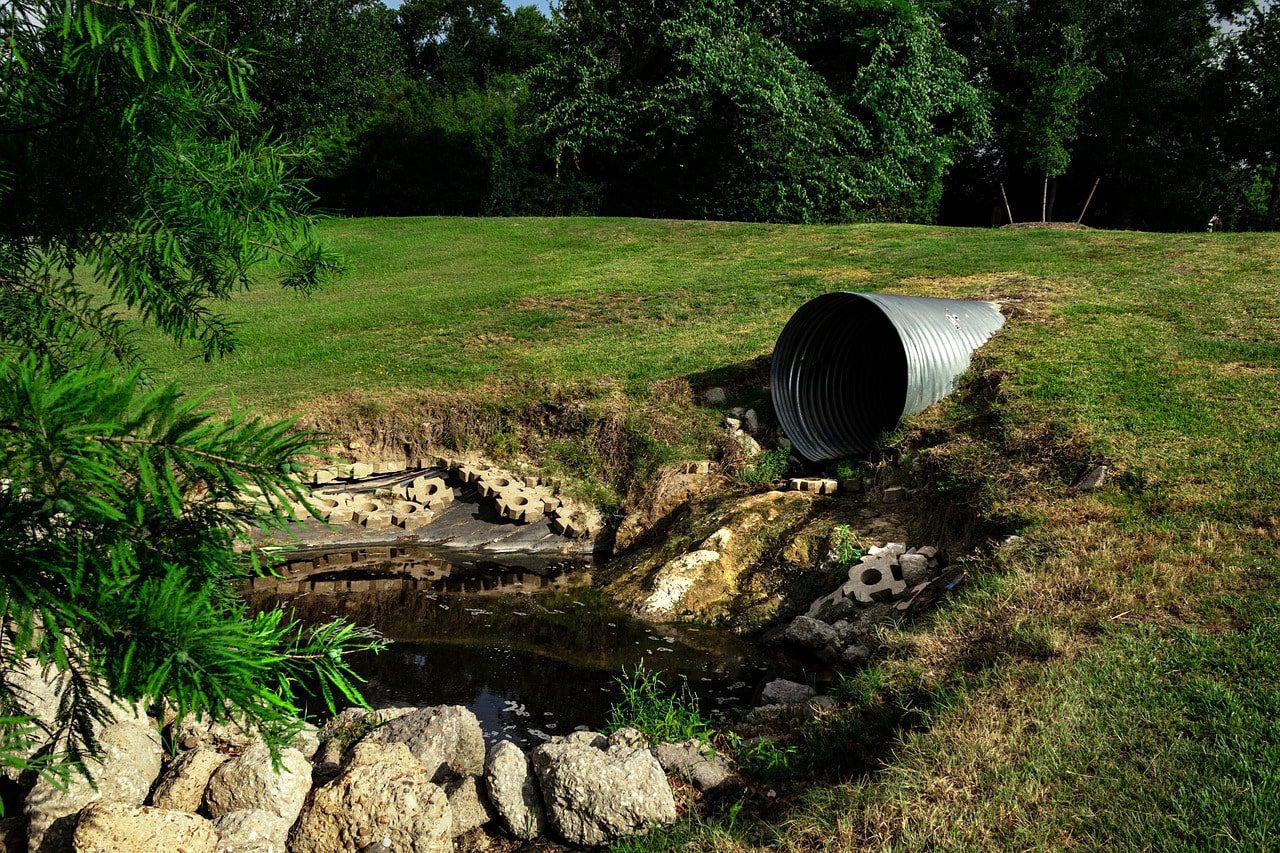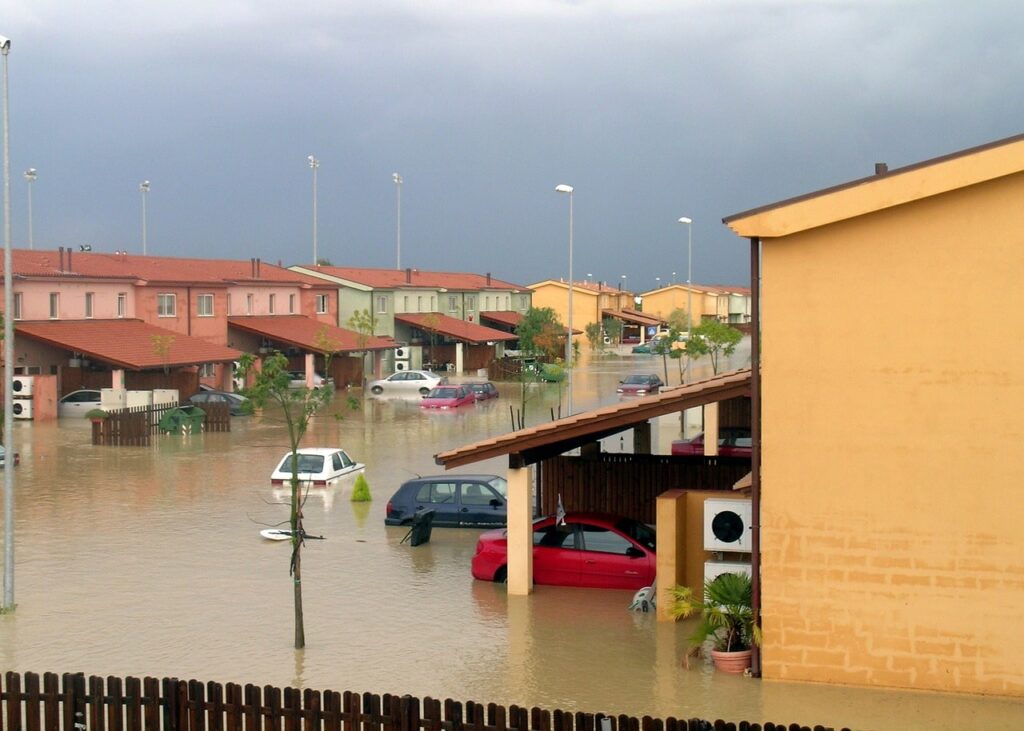Back-ups in the sewer system are a typical issue that can lead to unpleasant conditions and even health risks. Sewer backup causes can include debris buildup, tree roots, broken pipes, or even just heavy rainfall. If you suspect a sewage backup, you should act quickly to minimize property damage and health hazards.
This article will explain why sewage backups occur and how to resolve them. We’ll also share some advice on symptoms of sewer backups so you know when they’re already happening in your home.
Why Should You Address Sewer Backups Promptly
The health and safety risks associated with sewage backups make this a particularly unpleasant plumbing issue. Diseases and even fatalities can be transmitted by sewage. Humans and animals alike are in grave danger from the pollutants, viruses, and bacteria that thrive in sewage.
Sewage can also carry pathogens like fungus and protozoa, as well as pharmaceuticals like pesticides and medication residues. Backflow from sewage systems can harm groundwater, surface water, and even private property.
Furthermore, hydrogen sulphide gas, or sewer gas, is the primary byproduct of decomposing human waste. It’s not harmful in little doses. Higher concentrations are toxic because they impair the function of oxygen-dependent organs and tissues, which can result in disease and death. Sewage backup, especially if it’s a lot, might cause these problems. It also irritates the respiratory system and the eyes.
5 Common Sewer Backup Causes
1. Aging Sewer Systems
Leaks, clogs, and other issues might occur as a result of aging pipes and sewers, and can also be one of the sewer backup causes.
Leaks not only waste water but can also flood homes and businesses. Aside from the material damage they might inflict, sewage backups also pose a health risk. When water leaks or sewage backs up, you may be responsible for paying higher water bills and making necessary repairs.
The material of your piping determines how long your sewage system will function. Orangeburg pipes endure about 50 years, clay and cement pipes can last up to 100 years, and PVC pipes can last over a century. Meanwhile, cast iron pipes last between 75 and 100 years.
Multiple slow drains, unpleasant odours, mould or mildew in the basement, and a rise in pests are four of the most prevalent indicators of a broken sewage line. Underground plumbing problems are very difficult to detect.
Homeowners can avoid water damage and the costs associated with aging sewer systems by having plumbers check their sewers and pipes on a regular basis, fixing any leaks or blockages as soon as they are discovered, installing a water leak detection system, and getting water damage insurance.
2. Tree Root Infiltration
Vapour is discharged into the soil as water moves through the sewer pipes. Trees and plants can absorb all the moisture, oxygen, and nutrients they need from the vapour. The tree’s roots are attracted to the vapour and will grow toward it until they reach the sewer pipe.
The tree’s roots will eventually grow through the crack and into the pipe, making it one of the most difficult sewer backup causes. The roots will keep expanding until they completely fill the pipe with a mat of roots that snag FOGG (fats, oils, grease, and grit). The roots could perhaps absorb anything else that is flushed down the toilet or drain.
Pipes and joints are often buried beneath the ground, so damage to them may go undetected until a homeowner experiences a plumbing issue. Regular inspections by a licensed Mississauga plumber can help detect and repair sewer backup issues before they cause major damage.
Since this issue occurs beneath the surface, it’s not always easy to spot when tree roots have invaded your plumbing. Some of the symptoms of root intrusion in your pipes include gurgling and slow-draining sinks.
You may be a pipe perfectionist who takes extra care of their pipes and instructs everyone in the house on what goes down the drain and what doesn’t. It’s possible that you took all the necessary precautions, such as putting hair snares in the shower and strainers in the kitchen sink. However, if your pipes are still making strange noises and taking too long to drain, the problem may be the result of plant life in your garden.
Does your yard feature any spongy or mushy areas? These could indicate tree roots have invaded your plumbing system and caused a pipe to collapse, either partially or entirely.
3. Blockages And Clogs
Draining fats, oils, and grease (FOG) are common sewer backup causes.
When FOG first enters a sewer line, it is a liquid. However, as it travels through the pipe, it begins to harden and become lodged. Debris gets trapped in solid FOG, which causes major clogs in the sewer system. A grease trap, a rectangular device that helps prevent oils, fats, and grease from entering the drain line, and routine drain cleaning can also help.
Additionally, old sewage pipes are prone to cracking, breaking, and collapsing. Severe sewage issues may result from this. To avoid this, you should replace your pipes as soon as possible if they are old. This not only keeps the sewer system clear of obstructions but also improves its overall efficiency.
Finally, poorly installed plumbing and drainage pipes have become more common as the number of people performing their own repairs and renovations has increased dramatically. If the pipes were not installed properly, they may be crooked or even collapse, which can cause blockages and clogs. In addition to being unsafe, improper installation can wreak havoc on other sections of your or your neighbour’s property, leading to costly repairs for everyone involved.
A backed-up sewer line is both an inconvenient and potentially dangerous situation. Take immediate action if you suspect a clog in your sewer system to avoid costly repairs.
Here are six warning signs of a sewer line blockage:
- Water taking longer than usual to drain from your sinks, showers, or toilets is a telltale sign of a blockage in the pipe.
- Wastewater may back up into your drains if the clog is bad enough. This is not only an annoyance but also a potential health risk.
- Bad odours might also be caused by a clogged sewer system. This is because the backed-up wastewater will begin to degrade, releasing noxious fumes.
- Another indicator of a clog is the presence of gurgling sounds in the drains. The wastewater is trying to break through the obstruction, which causes this.
- The drains may overflow if the clog is severe enough. This can cause a huge mess and possibly even property damage.
- Pipes can be severely stressed by a clogged sewer line. The pipes may explode if the obstruction is not removed. Repairing this can be quite expensive.
If you have any of these issues, you should contact a plumber immediately for sewer backup repair. If you want to avoid costly repairs to your sewer line, hiring a plumber to remove the obstruction is a must.
4. Heavy Rain And Flooding
There is no denying the fact that severe weather can be one of the sewer backup causes. The pressure inside the pipes can rise dramatically when there is an abundance of rain. Water from the roof and yard might enter the ground above the pipes and cause flooding.
The heavier soil allows for the laying of pipes at a deeper depth. The pipes may become bent or broken as a result of the shifting ground caused by the increased moisture.
The plumbing in your home can take a serious beating from flooding. Internal and external drains can become clogged with the dirt, sand, and silt carried by flood water. The internal or external drains, or both, may get clogged with deposits and debris from the drain. Having a leak spring up unexpectedly is a common way to alert you to a problem.
It’s best to call a plumber as soon as possible if you notice a clogged drain system. Fortunately, with the help of a reliable local drain cleaning service, any obstruction, no matter how tenacious, may be removed.
Professional plumbers can provide sewer backup cleanup for your drains using hydro jetting.
After a flood, it is prudent to check the exterior pipes to make sure they were not damaged. If you see a leak or crack, don’t wait for the next storm to pass before having a professional plumber fix it. You should avoid being unprepared.
When it rains a lot, water might sit outside your house for a while. Underground pipes are susceptible to damage by heavy soil and water, which can exert undue stress on the pipes and eventually shatter them. If you want to be sure everything is in working order, you should call a plumber to inspect it.
Up to 29% of the annual precipitation falls in late September and early October in much of Ontario (with an average of 14 wet days per month and up to 3.5 inches of rainfall on any given day in places like Burlington, Mississauga, and Oakville).
In order to prevent any potential flooding or water damage to your home, you need to install a backwater check valve, also known as a sewer backflow valve. This device is installed in municipal sewer pipes to stop water from entering buildings. Have a backwater valve installed and serviced twice yearly if your home or company is connected to the municipal sewer system and is located in an area prone to severe rains or flooding.
If a sewer line becomes clogged or blocked, sewage water and harmful gases could potentially back up into a building. Sewer traps are available in a variety of designs (S, Q, U, and J), and each one serves the same purpose: they prevent sewer gases from reentering a building by collecting and storing water at the trap’s base.
5. Broken Or Collapsed Pipes
Sewer backups can occur when pipes are damaged or collapsed. The obstruction of wastewater flow might be caused by a broken or collapsed pipe. Because of this, sewage may begin to back up into your plumbing, making this one of the most expensive sewer backup causes.
There are a variety of potential causes for pipe failure or collapse, including:
- The likelihood of a pipe bursting or collapsing increases with its age.
- Pipes corrode with time, which weakens them and increases the likelihood that they may break.
- Roots from trees can destroy or collapse pipes if they grow into them.
- Pipes can be broken or collapsed if excavation is done too close to them.
- Heavy rains and flooding, for example, can cause pipelines to burst or even collapse due to the strain they place on them.
A plumber should be called immediately if you suspect a broken or collapsed pipe. The damage can be evaluated and fixed by a plumber.
Here are some ways to keep your pipes from bursting:
- Get a plumber to do periodic checks on your plumbing. This will aid in detecting issues before they lead to a catastrophic failure.
- Grease, oil, and fat shouldn’t be flushed down the toilet. The accumulation of these compounds in pipes can cause them to become brittle and eventually burst.
- To prevent food scraps from going down the drain, use a strainer. This will reduce the likelihood of pipe breaks caused by obstructions.
- Digging near pipes requires extra caution. Before beginning any digging project near pipelines, it is imperative that you phone 811 to have the lines located.
- Ensure that the pipework is adequately supported. Unsupported pipes are more likely to burst or collapse.
In order to keep your sewer system in good operating order and avoid pipes from breaking or collapsing, you should follow these suggestions.
Symptoms Of A Sewer Backup
Knowing the symptoms of this issue can help in sewer backup prevention. Watch out for these signs and call a plumber as soon as you experience them.
1. Foul Smells
One of the first indicators of a sewer problem is a foul odour. Odours emanating from a sewer system could be anything from musty to putrid. However, not all unpleasant odours indicate a problem with your sewer system, but if there is no obvious explanation for them, you should have a Mississauga professional plumber take a look. There’s probably going to be a sewer backup if the smells don’t go away.
2. You Have Sluggish Drains
Another sign of an existing or impending sewer backup is sluggish drains in your home. A slow drain could be the result of trash, debris, and other waste piling up over time. In a similar vein, thirsty tree roots frequently burst pipes. Because of this, your drains will eventually back up.
When this happens, many people reach for chemical drain cleaners, which is a bad idea. These toxic chemicals are not only ineffective but can actually do more harm to your pipes. The leak’s spillover into the surrounding region can also be dangerous.
If you have slow drains and think you may have a sewer backup, you should always contact a professional plumber for Mississauga drain cleaning and repair.
3. Overflowing Toilets
Don’t freak out if you experience a clogged or overflowing toilet. Fixing the problem is typically simple. However, you should be worried if you notice that the toilet keeps backing up for no apparent reason. Constant problems with the toilet could indicate a sewer backlog that requires professional plumbing assistance.
This is a disgusting, dirty, and time-consuming mess to clean up. Get a plumber’s help right away if your toilet keeps getting clogged or backing up, especially when you know you don’t flush anything besides stool or pee. A professional plumber can perform diagnostics to find the root of the problem and implement lasting solutions.
4. Weirdly Lush Areas in Your Garden
Have you seen any new vegetation appearing in your yard that you didn’t plant? How do they compare to the rest of your yard in terms of health, greenness, and rate of growth? You should be concerned if you notice any alterations along your sewer pipes, as this could indicate a ruptured sewer line. A water leak might be to blame for all that greenery. As time passes and the cracks in the sewer pipe grow, debris and other forms of dirt may find their way inside.
If you see something like this, it’s a warning sign that something is wrong with your sewer system. Calling a plumber will give you peace of mind and prevent waste from backing up into your home.
5. Noises (Bubbling and Gurgling)
Listen for unusual sounds coming from your sink, shower, or toilet as another warning indication. A clog or a rupture in your sewer system could be the cause of these problems. When you turn on the water, flush the toilet, or pour something down the drain, you may hear a gurgling or bubbling sound.
This takes place when air is allowed to enter an area that normally would not and water movement is obstructed. Don’t disregard these noises just because you don’t find them annoying. They may indicate a more serious issue that needs attention. Taking preventative measures before an issue escalates can save you money in the long run.
6. Wetland Areas
Do you have pools of putrid water appearing on your property? If you notice this, it’s likely because water is leaking via gaps in your sewer line. You can see exactly where the sewer is leaking into your yard because of the puddles. Do not delay in getting professional help for this matter.
The puddles reveal the locations of wastewater collection systems beneath your lawn. Sinking and structural damage can be costly to repair if leaks emerge beneath yard fixtures like sidewalks, patios, decks, and driveways.



